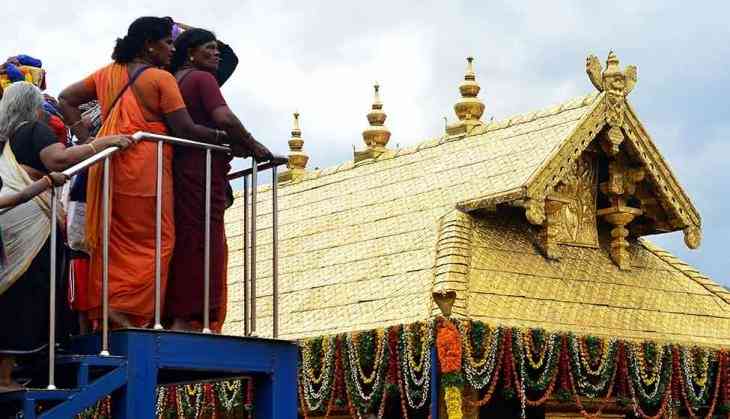
Supreme Court will give another verdict today on Sabarimala temple case. The case is related to the entry of women inside the temple. Yes, there is a question that has to be answered today by the apex court that whether the women aged between 10 and 50 should be allowed to enter Kerala’s famous Sabarimala temple, located at the Periyar Tiger Reserve in Pathanamthitta district.
As menstruating women are restricted from offering prayers inside the temple to the presiding deity, Lord Ayyappa.
Earlier on 1st August, the five-judge constitution bench headed by Chief Justice Dipak Misra had reserved its verdict on a bunch of the petitions that were challenged the entry of women inside the temple after hearing the case for eight days.
As per the Rule, 3(b) of the Kerala Hindu Places of Public Worship (Authorisation of Entry) Rules of 1965, the entry of the women of aged 10-50 years are restricted to enter the Sabarimala Temple and offer prayer to the deity, Lord Ayyappa.
Managed by the Travancore Debaswom Board (TDB), the Sabarimala Temple is dedicated to Lord Ayyappa, who is a perpetual minor and resides here in Naishtik Bharamchari (eternal celibate) status.
It is to believe that if menstruating women entered the temple then it would disrupt the celibacy of Lord Ayyapa. Therefore, women aged between 10 and 50 are not allowed to enter the temple on the ground of ‘impurity’.
Meanwhile, the Supreme Court will decide today whether the restriction should be scrapped or not? The case comes to notice to Supreme Court in 2006, when a group of five women challenged the rule prohibiting women from entering the Sabarimala Temple. They also said that banning on the entry violated the fundamental right to equality and of protection from discrimination on the ground of gender.
Watch Video:
Also read: Supreme Court verdict on adultery welcomed by lawyers, activists; some raise concern too
First published: 28 September 2018, 8:05 IST

